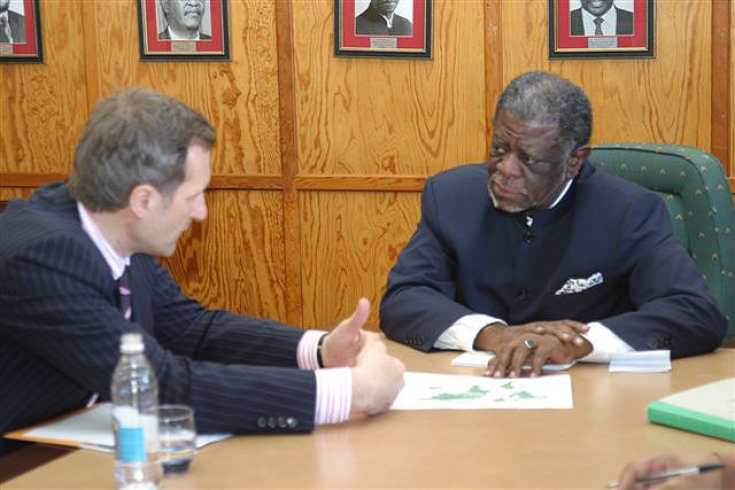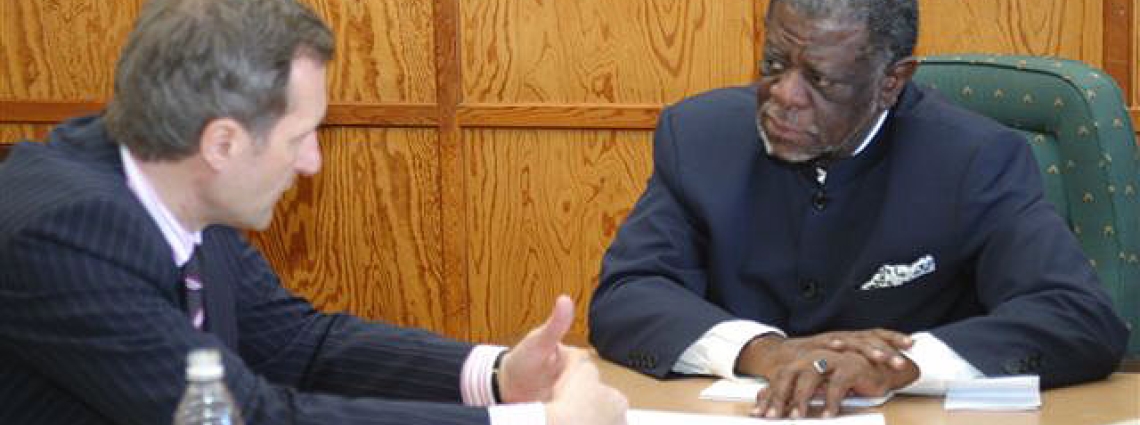Namibia shows its strong support for the CTBT
Signing of Facility Agreement The Government of Namibia, represented by the Minister of Mines and Energy, Hon. Erkki Nghimtina, also concluded a Facility Agreement with the CTBTO on 1 April 2009, which entered into force the same day. This agreement has granted the CTBTO the necessary legal authority to carry out work on its two International Monitoring Stations in Namibia, auxiliary seismic station AS67 and infrasound station IS35.

The CTBTO’s Executive Secretary, Tibor Tóth, to the left of the photo with the Speaker of the Namibian National Assembly, Dr Theo-Ben Gurirab.
Namibia shows its strong support for the CTBT
The Pelindaba Treaty and the CTBT
Cooperation between the CTBTO and the Inter-Parliamentary Union
CTBTO’s International Cooperation workshop for SADC Member States
11 SADC Member States participate in the workshop
Four remaining SADC States urged to ratify CTBT
Possibility of tsunami warning system for African region
Number of certified IMS facilities around the world constantly increasing
7 Apr 2009
